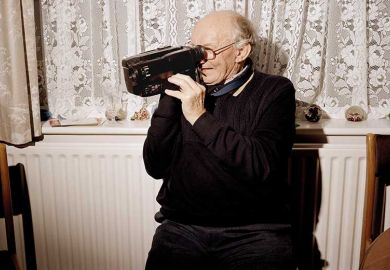A pre-election spending splurge has fuelled perceptions that the world’s biggest sovereign future fund for medical research has been hijacked to buy political goodwill.
More than half of the almost A$1.4 billion (£750 million) in allocations promised from Australia’s Medical Research Future Fund over the past three years has been announced since the beginning of February, according to a tally of announcements on an independent website that attempts to track MRFF spending. Australia is holding a federal election in May.
Critics say that “captain’s picks” by health minister Greg Hunt could be funnelling MRFF money into pet projects that may not deliver the best bang for buck. A sizeable chunk of MRFF funding allocated to date has gone to directly “targeted” grants, rather than open grant calls.
Lobbyists seeking funds for individual institutions have been “greatly assisted by the upcoming election”, one university biomedical researcher, who asked not to be named, told Times Higher Education.
The researcher said that funding announcements had moved “way ahead” of the Liberal Party-led government’s spending timetable, as it rushed to trumpet good news and leave little for Labor to distribute if it won the election.
The MRFF, announced in 2014 by Tony Abbott’s government, is scheduled to grow to A$20 billion in coming years. While the value of grants is scheduled to roughly double each year, as the fund accrues capital and disburses more earnings, the announced handouts have grown at twice this rate. Researchers are unlikely to see much of the money for years, with many initiatives financed over 10-year timeframes.
The government acknowledged that, of the A$222 million earmarked for disbursal this financial year, which ends on 30 June, 92 per cent has already been committed.
Catherine King, Labor’s health spokeswoman, said that she had “repeatedly expressed concerns about the governance of the fund”. “It would be very wrong if the government was to treat the MRFF as an election slush fund,” she told THE.
“I know many in the sector share those concerns. There is no peer review and no independent oversight of disbursements, meaning the government can fund pet projects with no independent scrutiny,” Ms King said.
“The Australian people deserve to know that this money is going to the most worthy and promising research projects – not the loudest lobbyists or Liberal mates.”
Mr Hunt’s office did not respond to THE’s request for comment.
Some sector experts said that governance concerns about the MRFF were overblown, with the majority of grants allocated through competitive arrangements. “Most to date have been managed by the National Health and Medical Research Council, [which] has vast experience running fair, rigorous, competitive peer-reviewed processes,” said Vlado Perkovic, president of the Association of Australian Medical Research Institutes.
He said that AAMRI wanted competitive processes used as much as possible to ensure that the MRFF funded “the best science [with] the greatest chance of a positive impact”. But circumstances occasionally required competitive processes to be bypassed, “particularly where an emerging disease threat requires a rapid response”, said Professor Perkovic, director of The George Institute for Global Health Australia.
The health department said that approximately 82 per cent of MRFF funding to date had been allocated through “open and contestable grant opportunities”. It said directly “targeted” grants were often channelled through NHMRC-accredited collaboration hubs, such as Advanced Health Research and Translation Centres.
Directly assigned grants also went to groups deemed “most suitable” for particular projects because of pre-existing national and international collaborations, it added.
Another sector source agreed that most money was being allocated through appropriate processes, but said many people in the sector did not recognise this because they were accustomed to “investigator-led” grant schemes – where applicants chose their research subjects – rather than “priority-driven” schemes such as the MRFF.
The source said that the government had fostered perceptions of a lack of process by failing to release consistent information about disbursements – despite requirements to do so, under the Medical Research Future Fund Act – and through the “flurry of announcements” before the election.
Register to continue
Why register?
- Registration is free and only takes a moment
- Once registered, you can read 3 articles a month
- Sign up for our newsletter
Subscribe
Or subscribe for unlimited access to:
- Unlimited access to news, views, insights & reviews
- Digital editions
- Digital access to THE’s university and college rankings analysis
Already registered or a current subscriber?








